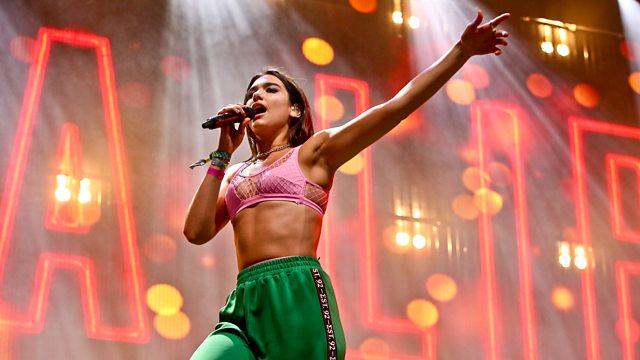Dua Lipa desires to convert this year’s Glastonbury into a lively nightclub atmosphere

What a leap forward. When Dua Lipa headlines Glastonbury this June, it marks her return to Worthy Farm since her performance at the cramped John Peel stage in 2017, which then boasted the largest audience she’d ever faced. The crowd overflowed from the tent into the surrounding fields. Immediately after her set, she dashed into an interview with the BBC, wincing as she sat down.
“I’ve done myself an injury,” she confessed. “I mashed my tailbone.”
It was an exacerbation of an old injury, a testament to the intense dancing she’s known for.
“I was doing all sorts of crazy stuff, and when I got off stage, I could barely walk,” she admitted.
Despite the pain, she was elated. The gig felt like “a massive step up”. At that point, Dua Lipa hadn’t yet become the global sensation she is today.
But just a month later, everything changed with the release of the pastel-hued video for “New Rules,” catapulting her into pop stardom.
Fast forward to January, “New Rules” hit three billion views on YouTube, coinciding with the ramp-up for her highly anticipated third album, “Radical Optimism”.
This record reflects her journey post-breakup, establishing new standards for her relationships.
Before, she says, she would ignore red flags, but now she’s learned not to deceive herself.
Lessons learned from her dating experiences are woven into the album’s energetic dance anthems.
Despite her fame, dating isn’t straightforward. Dating apps might not work for her, so she prefers recommendations from friends.
For now, her personal life takes a back seat as she prepares for a busy summer, including hosting and performing on “Saturday Night Live” and the release of her new album.
Her journey to headlining Glastonbury is a tale of ambition, setbacks, and resilience, starting from her days at the Sylvia Young Theatre School.
Despite early struggles, Dua has evolved into a polished performer, as seen in her Grammy and Brit Awards performances.
Her new album showcases a shift in perspective, with more personal and introspective lyrics.
Dua emphasizes the importance of female solidarity in the industry, noting the positive shift away from false rivalries towards collaboration and support among female artists.
